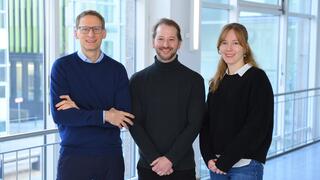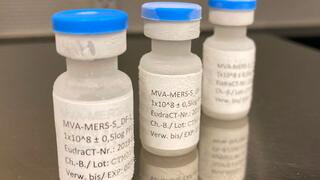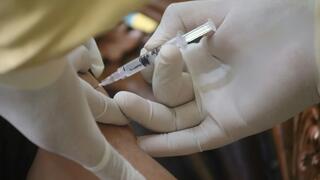Vaccine
A vaccine contains an antigen that is given to individuals in order to establish protective immunity against a particular infection.
Detailed description
The antigen contained in the vaccine can consist of inactivated or attenuated pathogens or purified components of the microorganism. Usually, the vaccine also contains and adjuvans, which unspecifically increases the immune reaction to the antigen.
Vector vaccines are genetically modified (and therefore harmless) viruses that serve as vectors for inserting the genetic material of a pathogen into target cells. The introduced DNA sequence can imitate an infection and trigger the production of antibodies.
In the DZIF a vector vaccine based on the "Modified Vaccinia Ankara" virus (MVA) is being developed. This MVA virus was generated at the LMU as a vaccine against smallpox more than 30 years ago. The scientists selected the spike protein on the surface of the SARS-CoV-2 virus as the appropriate coronavirus component. The resulting vaccine virus then penetrates the cells as due to the vaccination and synthesises the spike protein, which is recognised by the immune system as "foreign" and thus stimulates the immune revaccine based on the "Modified Vaccinia Ankara" virus (MVA) is being developed. This MVA virus was generated at the LMU as a vaccine against smallpox more than 30 years ago. The scientists selected the spike protein on the surface of the SARS-CoV-2 virus as the appropriate coronavirus component. The resulting vaccine virus then penetrates the cells as due to the vaccination and synthesises the spike protein, which is recognised by the immune system as "foreign" and thus stimulates the immune response.






